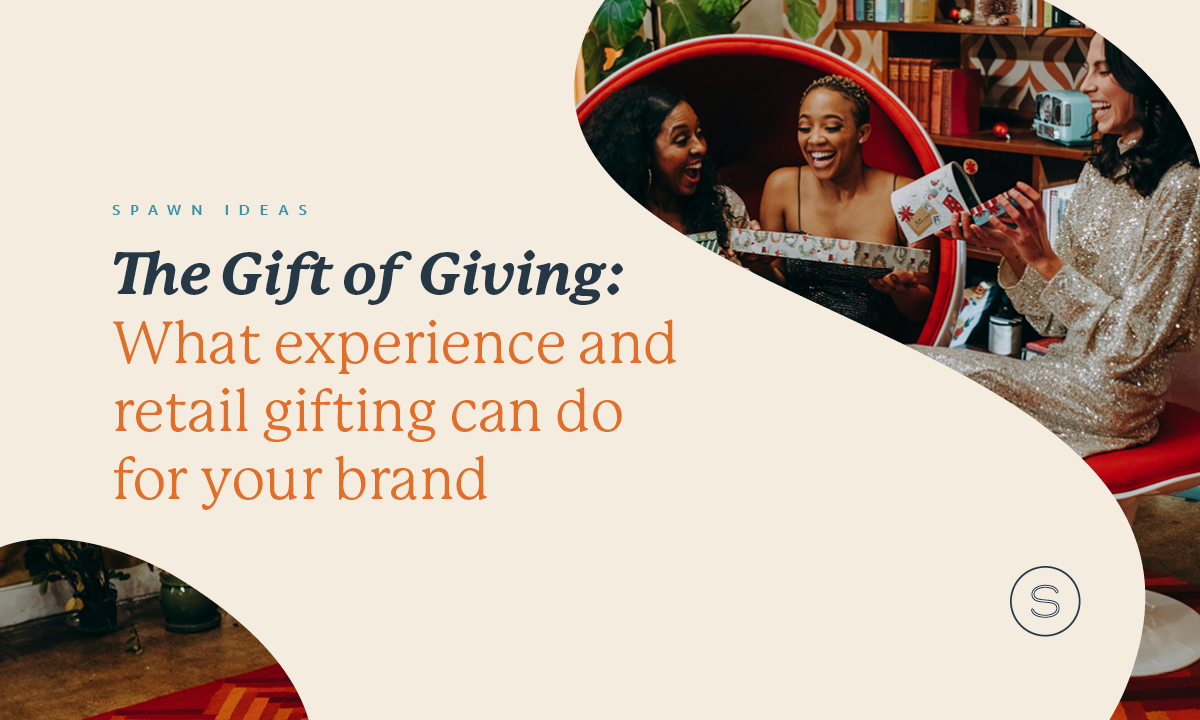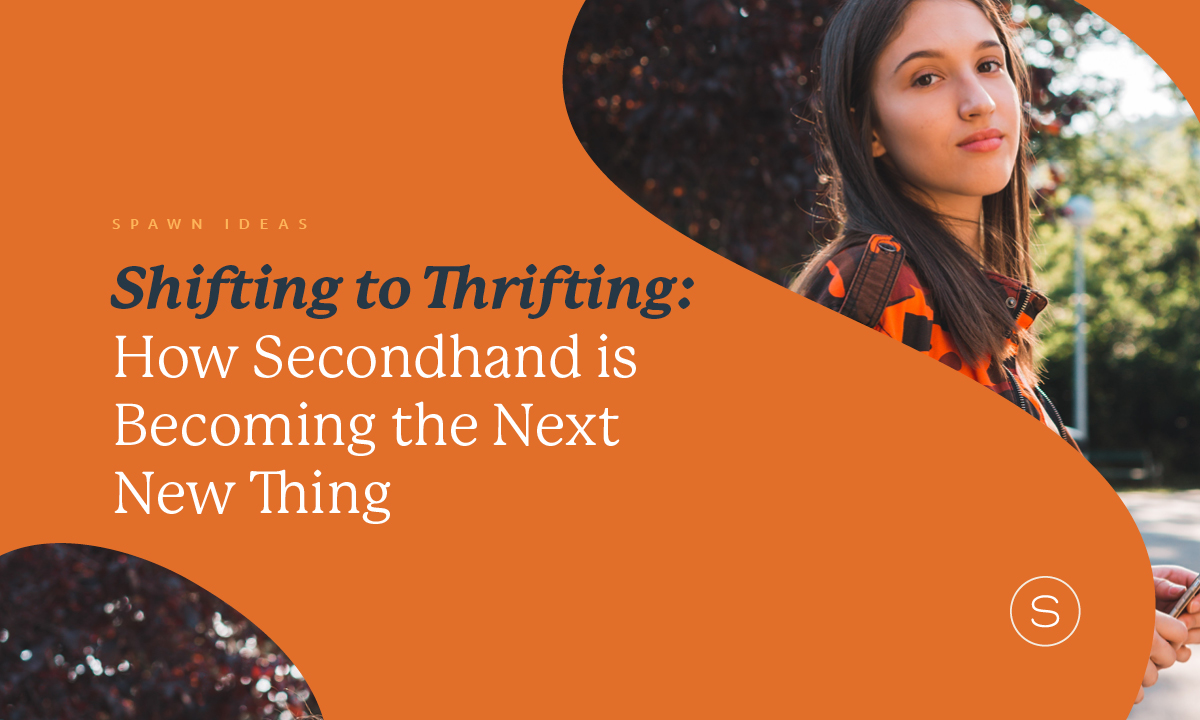By Siobhan Johansen
When it comes to holiday gift giving, there are two types of givers: those who love to give physical gifts, and others who give the gift of experiences. Both options have their pros and cons and whichever gift giver you choose to be is very subjective to who you are buying for! Having a tangible gift in your hands can be just as fun as looking forward to a trip or an experience, and experience gifts can provide long-lasting memories.
We at Spawn Ideas understand both of these gift-giving camps thanks to our work with experience-centered clients like Travel Alaska and the Alaska Railroad, and retail clients like Plano. We can show you how your brand can appeal to prospects for either preference.
Psychology of gift giving
What does it mean if gift giving is your love language? Spoiler: it doesn’t mean you’re materialistic. As Women’s Health Magazine explains, a “gift is an overt demonstration of your love and appreciation for the person receiving it.”
Gifts can be an outward reflection of ourselves with the intent to remain close to someone, or can come with the intent to show empathy and awareness of others’ preferences and needs. As research from Psychology Today demonstrates, gifts can also carry emotional or nostalgic significance. The intent behind all thoughtful gift giving is inherently based on demonstrating love for the recipient.

Gift giving in 2022
Depending on the recipient, there are a wide range of gift options to choose from. Gifts can be physical things that are bought at a store, or experience-centered gifts, like a cooking class, plane tickets to an exciting destination, or an activity like skydiving or scuba lessons.
Recently, as explained in this Think With Google article, gifting in 2020 grew beyond just an act of love on special occasions, to one of empathy and a way to bridge the physical distance caused by quarantine.
Due to the length of separation caused by the COVID-19 pandemic, people today are rebounding by giving more gifts to make up for lost time. These gifts, whether retail or experience-centered, all have the potential to take on more meaning now that we can gather together once again.
Brands and buyers who choose experience
Experience-centered gifting is on the rise.
In September 2021, a study found that nearly nine in 10 parents were likely to travel with their children within the following 12 months. Additionally, in the beginning of 2022, founder and CEO of online travel referral platform Zicasso shared that family group bookings of six or more people grew by more than 50% since 2019. In November of 2021, about 43% of consumers reportedly planned to redirect their spending to experience-centered and service gifts during the holiday season.
Experience-centered gifts have become popular not just because of the rise of gathering post-pandemic, but are a stellar option for the person who has everything. They might have the exact watch, backpack or ski gear they want, but you know what they don’t have? A ski vacation to their favorite resort!
Your mom might be a world class chef with a kitchen brimming full with gadgets and utensils, so what more could she possibly want? How about a family cooking class to make some memories, while also learning a new recipe!
Research done by Microsoft shows that experiences like beach trips, spa days and culinary/dining centered trips continue to rise in popularity. Similarly, wellness tourism is expected to increase an average of 20% each year for the next three years.
These experiences can bridge a gap for those who do the bulk of shopping and planning, but who seldom have gifts that truly interest or excite them. Looking forward to a trip or an experience is half the fun, and is a great option for people of all ages.
Brands and buyers who choose retail
It’s important to note that experience and retail are not necessarily separate paths in gift giving. Experience-centered gifts, like a trip to Hawaii, can benefit from some retail gifts to make it a memorable experience. You can’t go to Hawaii without a great pair of sunglasses or the perfect swimsuit, and that cooking class may lead to upgrading some of your kitchen equipment.
There’s also something very special about the tangible quality of retail gifts. Tearing wrapping paper off a box and the instant gratification of a tangible gift is an exciting moment in itself. Sometimes, a retail gift is all you need to let someone know you were thinking of them.
Similarly, a retail gift doesn’t negate the need for an experience-centered gift, or vice-versa. REI is a great example of a brand that builds in the opportunity for experiences right into their retail offerings. REI understands that you’ll need some retail purchases to make that experience as memorable as possible.
Let’s say you book a REI kayak trip for your significant other. The next step could be buying a new waterproof phone case or water shoes. These could be given as gifts or can be something the receiver of the kayak trip decides they need and buys later on.
What this means for your brand
Now the million dollar question. What does this mean for your brand? Simply put, it means that no matter what gifting camp your brand falls under (experience-centered or retail), there is a customer base looking for what you have to offer.
For retail focused brands, look at what experience gifts are already in your space, and see how you can help supplement those experiences with your products. Consider partners you can pair up with to offer the whole package to gift givers.
If you’re focused on offering experiences, ask yourself what retail purchases are needed to help set your buyer up for success. Again, consider partnering with outdoor tours or adventure-focused travel to focus these efforts.
Because both kinds of gifts complement one another, honing the focus on what your brand offers in either experiences and/or items people are buying is key. Having a real understanding of who your buyer is – whether they’re an experienced adventurer, novice or family – will give you the edge in connecting them with your brand.





